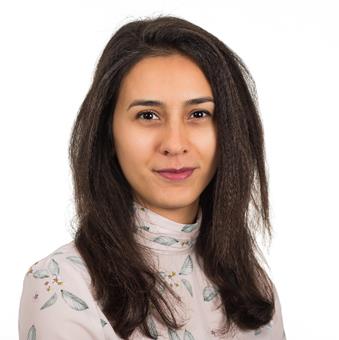Resources
Software in terms of, for example, simulation models, computational tools, and on-line education material is an important and useful way to disseminate research results. The researchers within SEDDIT contribute to this in several different ways. This page summarizes some of these contributions and provides links to these resources. The software tools are tightly connected to the Core competences of SEDDIT.
YALMIP
The MATLAB toolbox YALMIP has been developed at Linköping University for more than two decades and is widely used in both academia and industry around the world. YALMIP introduces a natural programming language for representing and developing optimization-based algorithms, dramatically reducing the effort required to test new ideas for researchers and engineers across a wide range of fields.
Over the years, the toolbox has both followed and pushed the frontiers of applied optimization, adding support and pioneering new ideas in areas such as parametric programming, mixed-integer conic programming, semidefinite relaxations, robust optimization, and global optimization. The development is still active, pursuing new ideas relevant to the research in SEDDIT.
Contact person

Johan Löfberg
johan.lofberg@liu.se
Fault Diagnosis Toolbox
Fault Diagnosis Toolbox is a Python package for the analysis and design of fault diagnosis systems for dynamic systems, primarily described by differential-algebraic equations. Key features of the toolbox are extensive support for structural analysis of large-scale dynamic models, fault isolability analysis, sensor placement analysis, and code generation in C/C++ and Python.
Contact person

Erik Frisk
erik.frisk@liu.se
Sensor fusion
Dive into the fundamentals of statistical estimation and filtering theory with our comprehensive Sensor Fusion course. Designed for graduate-level students at Master’s level, this course explores key concepts using localization and target tracking applications. Course highlights:
- Short Topic Videos: Concise and informative videos that cover the most essential topics.
- Reading Instructions: Guided readings to deepen your understanding.
- Hands-on Labs: Two practical labs with detailed instructions and datasets to apply your knowledge.
This course is perfect for self-study, providing all the materials you need to master Sensor Fusion at your own pace.
Contact person

Gustaf Hendeby
gustaf.hendeby@liu.se
Reinforcement learning
Reinforcement learning has a strong theoretical basis. Despite its theoretical complexity, it can be applied to solve many different practical problems. So, while learning RL, one may wonder, “How can such theoretical concepts be translated and applied in practice?” Below, you can find the handout and code for a short course on Reinforcement Learning.
A more comprehensive version of the course can be found below.
Contact person

Farnaz Adib Yaghmaie
farnaz.adib.yaghmaie@liu.se
Real-time certified QP solvers
As a result of our research on real-time certification and exact complexity certification, summarized in the referenced thesis below, we have developed and released several software tools. The ASCertain.jl software used for exact complexity certification is now publicly available. Additionally, we provide daqp, a real-time certifiable, state-of-the-art, free QP solver tailored for embedded applications such as model predictive control (MPC). Although currently optimized for short prediction horizons without exploiting sparsity, it is among the fastest and most reliable QP solvers available. Its ability to be both exactly and real-time complexity certified makes it highly suitable for safety-critical applications.
Furthermore, we introduce ParametricDAQP.jl, a state-of-the-art multi-parametric QP solver based on our recent publication. A Python implementation is also provided. Parametric programming is especially well-suited for real-time applications like MPC, though it extends to broader use cases. Our solver has demonstrated performance approximately an order of magnitude faster than other popular alternatives.
PhD thesis
ASCertain.jl
daqp QP solver
ParametricDAQP.jl (Julia)
ParametricDAQP (Python)
Publication behind ParametricDAQP
Contact person

Daniel Axehill
daniel.axehill@liu.se
Modeling and control of powertrains
The list below contains models related to Modeling and Control of Engines and Powertrains that have been developed at Vehicular Systems and are freely available. The book “Modeling and Control of Engines and Drivelines”, by Lars Eriksson and Lars Nielsen, John Wiley & Sons, 2014, gives a solid background to the potential user of these software packages.
Complete and free Matlab/Simulink models of a heavy-duty diesel engine model with EGR and VGT.
https://www.vehicular.isy.liu.se/Software/TCDI_EGR_VGT/
https://www.vehicular.isy.liu.se/Software/LiUDiesel2/
Matlab/Simulink model of a heavy-duty truck with a Fuel Cell Hybrid Electric Powertrain.
https://www.vehicular.isy.liu.se/Software/ECCV_Platform/
A complete and free Matlab/Simulink simulation testbed of a TCSI engine model for testing and evaluation of residuals generation and fault diagnosis methods.
https://www.vehicular.isy.liu.se/Software/TCSI_Testbed/
A parameterization algorithm for a control-oriented compressor model capable of extrapolating outside the regions normally measured in gas stands.
https://www.vehicular.isy.liu.se/Software/LiU_CPgui/
Contact person

Lars Eriksson
lars.eriksson@liu.se
